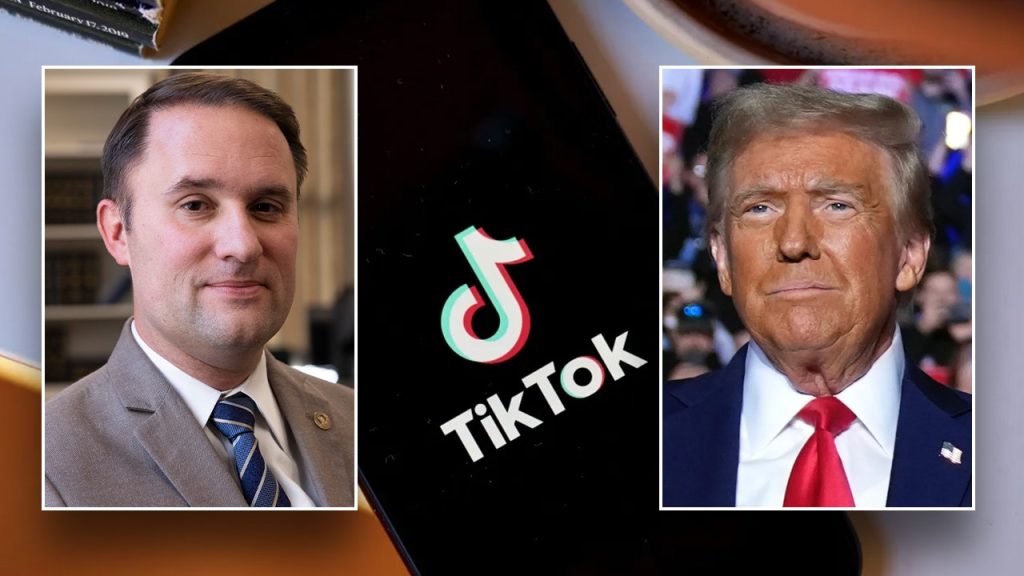The fate of TikTok in the United States hangs in the balance, with legal battles and political maneuvering intensifying the scrutiny surrounding the popular social media platform. At the heart of the controversy lies TikTok’s connection to its Chinese parent company, ByteDance, and concerns over potential data sharing with the Chinese Communist Party (CCP). Republican attorneys general, notably Jason Miyares of Virginia and Austin Knudsen of Montana, have taken a firm stance against TikTok, filing an amicus brief urging the Supreme Court to compel the platform to sever its ties with the CCP. This legal action aligns with broader concerns about national security and data privacy in the digital age, particularly with regard to foreign influence. Meanwhile, former President Donald Trump has also weighed in on the matter, filing his own amicus brief seeking to postpone the TikTok ban and reserve the authority to make executive decisions regarding the platform’s future upon his potential return to office.
The amicus brief submitted by the Republican attorneys general emphasizes the perceived risks associated with TikTok’s continued operation in the U.S. without a clear separation from its Chinese parent company. Miyares and Knudsen argue that whistleblower reports provide compelling evidence of ByteDance sharing sensitive information, including Americans’ browsing habits and facial recognition data, with the CCP. This data sharing, they contend, poses a significant threat to national security and individual privacy. The brief underscores the importance of safeguarding American citizens from potential foreign exploitation and calls upon the Supreme Court to uphold Congress’s authority to protect against such threats, while also ensuring that the First Amendment is not misused to shield foreign adversaries engaged in exploitative practices.
Trump’s amicus brief takes a different tack, advocating for a delay in the TikTok ban to allow him, as a potential future president, to address the issue through executive action. Trump’s legal team argues that he has a unique interest in the First Amendment implications of the case, highlighting the complex interplay between free speech rights and national security concerns. The brief asserts that Trump, as the potential incoming chief executive, bears a significant responsibility for national security and foreign policy matters, positioning him as the appropriate constitutional actor to resolve the TikTok dispute through political means. This stance reflects Trump’s broader approach to national security and his willingness to intervene in matters perceived as threats to American interests.
The clashing perspectives presented in these amicus briefs highlight the multifaceted nature of the TikTok debate. The Republican attorneys general prioritize the immediate severing of ties between TikTok and the CCP to mitigate perceived national security risks. Trump, on the other hand, seeks to retain executive control over the situation, potentially aiming for a solution that balances national security concerns with the preservation of TikTok’s presence in the U.S. market. The Supreme Court now faces the challenge of navigating these competing interests and reaching a decision that addresses both the free speech implications and the national security concerns raised in the case.
The underlying tension between free speech and national security forms the crux of the TikTok dilemma. While proponents of a ban emphasize the potential for data exploitation and foreign influence, critics argue that such a ban could infringe upon First Amendment rights and set a dangerous precedent for restricting online platforms. The legal battle surrounding TikTok underscores the increasing complexities of regulating technology in the digital age, particularly when balancing individual freedoms with national security imperatives. The Supreme Court’s decision in this case will likely have far-reaching implications for the future of online platforms and the extent to which governments can regulate their operations.
The TikTok saga also highlights the growing concerns about the influence of foreign governments in the digital realm. The potential for data breaches, misinformation campaigns, and other forms of online manipulation by foreign actors has become a focal point for policymakers and national security officials. The case against TikTok serves as a microcosm of these broader anxieties, raising questions about the appropriate level of scrutiny and regulation for foreign-owned technology companies operating within the United States. The outcome of this legal battle could shape future policies regarding data security, foreign investment, and the balance between national security and individual liberties in the digital sphere. The Supreme Court’s decision will not only impact TikTok’s future but will also set a precedent for how similar cases involving foreign-owned technology companies are handled in the years to come.















